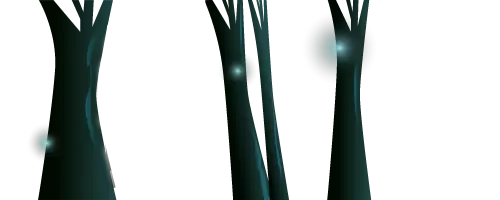RESEARCH SHOWS PSILOCYBIN SHAKES UP OUR BRAINS

The effects of psilocybin, an active ingredient in magic mushrooms and truffles, are increasingly being studied by scientists. Although the use of psilocybin dates back thousands of years, it is only recently that researchers are trying to better understand how this drug affects the brain. Recent studies explore possible changes in brain activity caused by psilocybin use and what these changes might mean for mental health.
How Psilocybin Affects the Brain
A number of studies show that psilocybin affects the so-called Default Mode Network (DMN), a network of brain regions that is active during resting and introspective thoughts. According to Dr Siegel, researcher at Washington University of Medicine, "psilocybin temporarily disrupts the synchronisation of these brain regions," which led to a sense of disengagement and increased introspection in some participants. Mentioning these findings reflects a growing area of interest, but further research is needed to draw conclusions about the longer term.
Dr David Siegel
Dr David Siegel is a neuropsychologist and pharmacologist at Washington University School of Medicine. He studies the effects of psychedelics, such as psilocybin, on brain structures such as the Default Mode Network (DMN), with a focus on applications in mental health.
Dr Nico Dosenbach
Dr Nico Dosenbach is a neurologist at Washington University in St Louis and specialises in brain mapping with fMRI. He studies how psychedelics affect the DMN and other brain networks, and explores their potential therapeutic value.
Significance in Context of Psilocybin Research
Both researchers are leaders in their fields and their scientific work contributes to the growing understanding of how substances such as psilocybin affect the brain. Their joint research offers important insights into the potential therapeutic applications of psychedelics for mental health problems such as depression and post-traumatic stress disorder (PTSD).
The research: how psilocybin shakes up the brain
When you use magic mushrooms or truffles, you notice different effects, such as hallucinations and distorting your sense of time and effects on your mood. These effects are caused by the substance psilocybin. Scientists at Washington University of Medicine in Saint Louis in the United States have been researching the mechanism of psilocybin and how it can cause these effects.
Research method
Psilocybin appears to have an effect on the Default Mode Network (DMN) in the brain. This is a collection of brain regions involved in reflective and introspective thinking. Researchers are building on pioneering research from the 1950s and 1960s that looked at the potential of psilocybin as a remedy for depression and anxiety. Now, however, there is much more knowledge about the brain, we have access to amazing medical equipment and we can make even more progress in such research. Lead researcher Dr Siegel says: "Today, we know a lot about the psychological effects and the effects of psilocybin at the cellular level. Yet we do not yet know exactly how the two are related, at the level of functional brain networks." That is why this study was set up.
Research design and results
In a small-scale study with seven healthy volunteers, participants were exposed to psilocybin or methylphenidate (Ritalin). Their brains were monitored with fMRI scans during the experience to analyse brain activity. These scan results suggested that psilocybin temporarily de-synchronises the Default Mode Network, which can induce brief psychedelic experiences and possibly stimulate the brain to make new connections. These findings are preliminary, and further studies with larger groups and long-term follow-ups are needed to confirm the findings and understand exactly what these connections mean.
Seven healthy volunteers participated in the study. They were given a high dose of psilocybin or methylphenidate (the generic version of Ritalin). The participants were accompanied by a therapist, who stood by them if anything happened during the trip and could help when they had a difficult experience. The therapist was also there to discuss and process the experiences afterward. Part of the study also included an average of 18 fMRI brain scans (functional brain scans, where a scan is taken while the participant is actively engaged). These took place in the weeks before, during and after psilocybin testing.
What stood out during the study was that the psilocybin caused the default mode network to become unsynchronised. This caused several profound changes in the brain. It was clear that psilocybin basically shakes up the brain considerably. There was a kind of chaos, a period when the brain was out of sync. The effect was intense, but not lasting. Over time, the balance was restored, but some minor changes persisted. This effect was observed only in participants who had taken psilocybin, not in those who had been given generic Ritalin.
Doctor Nico Dosenbach, a professor of neurology involved in this study, states: "In the beginning, the effect is huge, but this slowly diminishes and then a small effect remains. And that is exactly what you would want to see in a drug that can be used as a medicine. You wouldn't want people's brain networks to be changed long term and drastically. But you also wouldn't want all the positive effects to disappear immediately and everything to go back to how it was. You want an effect that lasts long enough to make a difference."
Possible Applications of Psilocybin
Some researchers suggest that the temporary brain changes caused by psilocybin could potentially benefit people with certain mental health problems, such as depression or trauma. However, Dr Dosenbach, professor of neurology, stresses that further research is crucial to fully understand its long-term safety and effectiveness. He explains: "While these initial findings are promising, it is essential to remember that psilocybin is not a substitute for regular therapies or medication and should only be considered under medical supervision." The use of psilocybin is still an experimental field and not intended as a regular treatment option.
Importance of Caution and Professional Guidance
Psilocybin has powerful effects that can evoke intense experiences, and it is not suitable for everyone. People with a vulnerability to mental disorders, such as anxiety or depression, are advised to use psilocybin only under the supervision of a qualified therapist or in a controlled clinical setting. Experimenting with psilocybin without supervision can have unwanted and potentially harmful effects.
Cautions on Mental Health
Using magic mushrooms or truffles can be intense and is not suitable for everyone. People with severe mental symptoms are strongly recommended to consult a doctor or therapist before considering psilocybin. Microdosing, or taking small amounts of psilocybin in combination with meditation, for example, is being explored by some individuals as a possible option, but there are no scientifically proven benefits yet. Professional counselling remains essential for all forms of psilocybin use.
Conclusion: Future of Psilocybin in Research and Health
Preliminary research findings suggest that psilocybin has an effect on brain activity, which could potentially be useful for certain aspects of mental health. Yet the use of psychedelics remains complex and surrounded by uncertainty. Large-scale research remains necessary to fully understand the safety, effectiveness, and potential applications of psilocybin as a therapy. As with any psychoactive drug, caution is advised, and consulting a medical professional is strongly recommended for anyone considering using psilocybin therapeutically.
Disclaimer: Consult a Professional
This information is for educational purposes only and should not be construed as medical advice. Always discuss the use of psychedelics with a doctor or healthcare professional first, especially if there are any existing health conditions or medication use
What are the benefits of this effect of psilocybin?
Doctor Siegel explains that the DMN is very important. The system allows humans to think about themselves in relation to the world. What psilocybin does is temporarily upset this system. "In the short term, this creates the trip, the psychedelic experience. But in the longer term, it helps make the brain more flexible and provides the stimulus to recover and become mentally healthier."
What also stood out during the study is that each individual's functional brain network is unique. It is similar to a fingerprint. During the trip, scans showed that these networks became so distorted that people could no longer be identified from their scans. Only when the acute effects of the drug had subsided did the brain patterns recover and the scans became recognisable again.
"The data showed that the brains of people using psilocybin are more similar than those of people who are not tripping," explains Dr Dosenbach. "It seems that their unique individuality temporarily disappeared. With this, we have scientific evidence for what people say they experience when they are tripping, which is that they lose the sense of their own self."
Tripping
So it is quite clear that psilocybin shakes up our brains on a deep level and that this effect can actually bring many benefits to our health. It suggests that the confusion it causes, temporarily de-synchronising the brain, causes the brain to become stronger and more flexible after a trip. Our brain is stimulated to make new connections and to adapt and change. This is probably why using magic mushrooms and truffles can have mental health benefits. It can help cope with trauma, depression, anxiety and other mental disorders. Psilocybin can help break fixed patterns and can provide a new outlook on life.
As difficult as it may sometimes be to turn your life upside down, this may be just what you need. So in that way, psilocybin might also be used. Like a friendly kick in the ass, like a loving friend who grabs you by the shoulders and gives you a good shake. When the wonderful experience of the trip is over, you start with a clean slate, so to speak.
Do you have mental problems? Tripping with magic mushrooms or truffles can help, but it is not wise to deal with them yourself if your problems are severe. In that case, seek guidance from a therapist. Possibly microdosing can help. Here you can also use journaling and combine it with meditation or breathwork. Hopefully this can help you get through a difficult period.

















